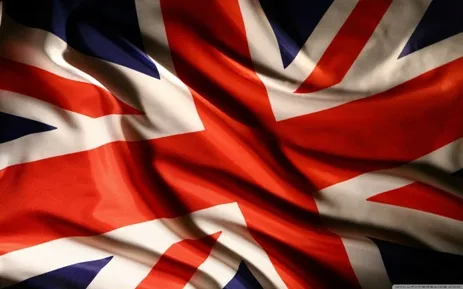UK celebrates World IP Day by announcing UPCA ratification
April 26, 2018
At last the doubters have been proven wrong. The UK has ratified the UPC Agreement. The news was announced this afternoon by IP Minister, Sam Gyimah MP, at an IP Awareness Network event at the House of Commons Terrace to celebrate World IP Day, and we can expect to see this ratification recorded tomorrow on the EU Council’s General Secretariat’s record of notifications on its website here.
Why the long wait?
It has to be admitted that it has been a marathon – completed more than five years after signature of the UPCA. At various stages, the UK’s progress has been stalled by a series of unfortunate events. To understand why the delays have occurred, it is important to understand that the UK’s constitution requires it to have passed all implementing legislation before it ratifies a Treaty such as the UPCA – unlike states such as France who can ratify first, and sort out the legislation afterwards.

Of course, the Brexit vote itself caused a delay whilst the Government considered whether it could and should proceed with involvement in the UPC project. That was resolved at the end of November 2016, and the answer was an unequivocal, unconditional “yes”.
The UK then continued on the path toward ratification by signing the Protocol and prepared drafts of the legislation necessary to implement it, that is draft Statutory Instruments (SIs) – one for the UK as a whole and one for Scotland. As a result, the Preparatory Committee in January 2017 was able to announce a start date for the UPC of December that year.
In early 2017, therefore, it looked like both the UK and Germany would be ready to ratify by about May, and it was planned that immediately after Easter (late April), the final draft of the UK SI would be presented to the Westminster Parliament. Then came the next unfortunate event: the General Election. This was announced literally just a few days before the planned Parliamentary session. The election was famously called after the Prime Minister had gone for a walk in Wales with her husband, and surely not even the most paranoid conspiracy theorist could have thought that this conversation went along the lines of: “How can we derail the UPC? I know, let’s call a General Election”.
Inevitably, therefore, it was only the other side of the election that progress could resume. By this time, the news from Germany that Dr Stjerna had filed his constitutional complaint at the BVerfG had finally emerged, meaning that again there was no real rush for the UK to act. However, it still tried. In July it authorised the start of the Provisional Application Phase, and even tried to squeeze approval of the UK SI into the Westminster Parliament’s last business session before the summer break, but this had to be abandoned due to more urgent business arising on the final afternoon of the session. But on the other side of the long break, progress resumed. With still no news from the BVerfG, save that amicus briefs were to be filed which would slow matters down further, there was still no rush, but the legislation was passed in December, bringing the Parliamentary stage to an end.
But then there was another delay. Was this a further deliberate delaying tactic? Not at all. Formal approval of SIs has to be given by the Privy Council. It is chaired by Her Majesty the Queen. She is over 90 years old and had planned a long holiday in January. Hence the next meeting of the Privy Council was not until February.
After that, the UK was in a position to ratify, but there was a further short delay then too. Why? Again purely practical issues arose. There was a new IP minister, and more significantly, the Foreign Office (the Ministry to take the final ratification step) was just a little busy with “minor” issues such as the poisoning of a former KGB spy in a small English city in broad daylight, and the Syrian crisis – and all while there was still no news from Germany to make UPC ratification urgent.
Hence, as your author has been saying since November 2016, once the decision to go ahead with the UPC project had been taken, it was just a matter of completing the mechanics, and the theories of some deliberate dragging of feet were quite simply wrong. Some suggested a cunning plan was afoot to use the UPC as a negotiating tool in the EU withdrawal negotiations. This is something your author could never understand: the UK wanted to be in the UPC, and the other contracting states wanted the UK to be in the UPC, so how could this ever have been a negotiating card?
What next?
So we are now at the stage where the UK has done everything it needs to do. What does that mean for the future? Strictly speaking, on its own, nothing. We still await a few countries who, despite ratification have yet to approve the start of the Provisional Application Phase – Austria, Bulgaria, Latvia, Lithuania, Malta and Portugal – of which two must do so before it can start (or for other countries who are yet to ratify to do so and approve the PAP). Plus, more significantly of course, there is Germany which remains a real remaining obstacle in the way of the UPC.
But vitally, serious discussions can now start about enabling the UK’s continued participation in the UPC system after Brexit (including after the end of the transition period after 31 December 2020), and that is probably the point of greatest significance arising from today’s announcement. Can agreement be reached on that? Can it extend to the unitary patent part of the package, which is clearly more difficult given its status as an EU right. Hopefully the answers to these questions will be “yes”. There appears to be a will, and as the saying goes: where there is a will, there’s a way.
Congratulations to the UK IPO and everyone else who has contributed to today’s excellent news.
For regular updates on the Unitary Patent and the Unified Patent Court, subscribe to this blog and the free Kluwer IP Law Newsletter.
You may also like















Attentive observer
In spite of what the author says there are still big stumbling blocks before one can clearly assert that the UK can participate to the UPC after Brexit. A lot of papers have been written and give an affirmative reply to this question. But in none I could find a convincing reply. Among the questions to be answered: - How is it possible to the UK to stay in the UPC after the Brexit if it does not accept rulings from the CJEU? - Why a court from a non-member state should be allowed to bring prejudicial questions to the CJEU? - How can a decision from a UPC court residing in England can be enforced in another UPC member state? - How can a decision of a UPC court, other than one residing in the UK, be enforced in the UK? - After all, the Brussels convention on enforcement will no longer apply to UK. Fiddling with the Administrative Committee of the UPC is not an option as it has not been designed for this purpose. Art 142 EPC is neither a solution to this problem. And last but not least, the UPC itself is full of references to Union law. That the UK legal profession will be delighted to stay in the UPC goes without saying, after all they played a prominent role at least in drafting the rules of procedure which still are at their 18th draft. The RPUC should be submitted to the EU. I have not heard anything in this respect. Not to forget there are other countries poised to take over the role of the UK. Alone the discussions about the possible relocation of the London branch of the central division of the UPC after Brexit gives an idea that the question is not easy to reply. The Italians want it in Milan, German industry want it in Munich and so on. As the UPC was not in the first Brexit negotiation basket, it is permitted to doubt that it will be in the second one. And it will certainly not be added just to the benefit of a few lawyers. In this respect the author contradicts himself when on the one hand he says that the stay in the UK was never a negotiation card, but now “serious discussions can now start about enabling the UK’s continued participation in the UPC system after Brexit”. That some lawyers in other potential member states wanted UK to stay in it is one thing, but they only wanted it in order to get the UPC up and running as quickly as possible. Nobody has been proved wrong, and hope dies last, but it is not tomorrow that the UK will, if ever, stay in the UPC. One thing which should be avoided at any cost is to put pressure on the GFCC. The UPC question is not on top of the pile, and there are other complaints pending before this one. Notably three complaints about the Boards of appeal of the EPO. They are not linked directly to the UPC question, but as the UP is a patent granted by the EPO it cannot be claimed that there is no relation at all between those complaints. Whilst a harmonisation in IP matters in Europe is an aim to be pursued, I am not sure that the UPC in its present form is the reply. And by no means is the UPC good for European industry at large and SMEs in particular, in spite of what is touted loudly in numerous canals. It is good for the big industry, and even there I have doubts. Who needs a patent in all contracting states of the EU and even in all contracting states of the EPC? But it will be much easier for non-EU patent owners to enforce their rights as barely a third of applications at the EPO come from EU member states. Has anybody ever thought of this? Techrigts: FINGERS OFF!!! You are very prompt to accuse others of lacking ethics. But then behave accordingly and do not poach comments you have been requested not to use.